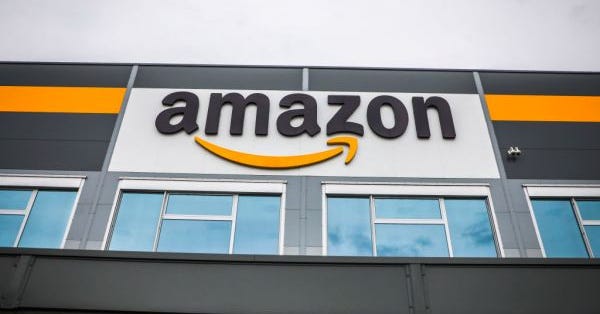WN#16: Vulnerable Leadership, Newsletters That Worth Money, Quibi's Short Adventure, and PayPal Supporting Crypto.
This week's about the need for Vulnerable Leaders, Newsletters that earn money, Quibi's Shutdown, Paypal embracing Crypto, Extreme Productivity, Media recommendations, and Amazon stories.
Hi @ll! Welcome to a new issue of the newsletter. This is the sixteenth issue; the newsletter is becoming an adult! Number sixteen is always related to independence and wisdom. Becoming wiser is one of the goals of writing it. Also, it was Pau Gasol’s jersey.
In the last issue, I set up a new goal to include some reading minutes in my mornings. Jocko wouldn’t be proud; that didn’t work. I am still doing workout and meditation, but I spend time with social media to help wake up. It is my excuse, which is the change for the next week, the substitution of social media for reading.
Following my retrospective about the years I am spending at MediaMarkt, I realized the importance of the people and the retention environment. I feel a lack of motivation, career progression, and challenges that I am interested in, but I am still not feeling uncomfortable going to work. I know that I should probably look for new challenges, but the companionship makes difficult the leap.
Today my selection of topics includes Leadership, Writing and Media, Technology, Fintech, Productivity Books, e-commerce, and more.
As I always share with you, please, do not hesitate to add your comments or share your feedback. One of my goals is to learn from you. And if you like it, please share it.
👐 The Need for Vulnerable Leadership
This week, Tomas Chamorro-Premuzic shared his article, co-written with the fabulous Amy Edmondson, about the need for more vulnerable leaders against the bullies or bravados.


When there aren't clear answers in these uncertain times, and people are probably experiencing fears, it is imperative to adopt the proper leadership that the situation requires.
It is more important than ever to show honesty, kindness, closeness, humility, adaptability, and humanity as a leader. A good leader uses emotions to achieve their goals. In the end, emotions and feelings impact the performance of individuals and groups.
Herminia Ibarra, a top leadership expert, shared days ago this talk from the World Economic Forum. From a leadership point of view, there's a need to shift from this feeling of invincibility to vulnerability.


This is a point also shared by Tomas and Amy. This year has proven that we are not invincible in many ways, from business, labor, to personal.
But what means to be a vulnerable leader? What are we looking for when we ask for vulnerability? It is not about showing any weak leadership but showing weakness in building human connection and trustworthiness. It is about showing yourself and not the fake image of yourself, embracing uncertainty, risk, and emotional exposure.
It is usual to create a social distance at work to show confidence, competence, and authority. It is said that this is a demonstration of a lack of authenticity.
There's a quote from Brene Brown that I use quite often, that is "Vulnerability is not winning or losing; it's having the courage to show up and be seen when we have no control over the outcome. Vulnerability is not weakness; it's our greatest measure of courage.".
I rescued this video from my Twitter timeline, from an interview with an Air Force Colonel, who shared that "Vulnerability is the birthplace of courage. And courage is not doing something because you're fearless. Courage is doing something because you're maybe afraid, and you do it anyway.".


This is the opinion of business thinkers and leadership experts. But, what about your opinion? How is your company facing these uncertain times? What kind of leadership style are you employing?
📨 The Evolution of the Media: Could You Live From Writing a Newsletter?
It is not related to this one. I expect mine to be free. But did you ever thought if you could be living from writing a newsletter? Check out Lenny’s tweet:


PM Lead at Airbnb means a considerable amount of money. You could think that Lenny was an early adopter and offered the newsletter as the principal value, and as the added value, he offered a network. When you subscribe to Lenny’s, you gain access to his slack group. Most people went for the newsletter and stayed for the content from the slack.
But Lenny is not the only one, nor the biggest. We read some weeks ago that Business Insider was planning to acquire Morning Brew for $75M. What a huge amount for a newsletter. Truth to be told, with almost 50 employees, Morning Brew is not a simple newsletter. It could be considered a media company. And again, Morning Brew is offering more value than what you could think of a newsletter. Check the following case study about Morning Brew from the awesome Growth Design team.
And we have several other examples from media stars and journalists. For example, the recent move from Casey Newton from The Verge to Platformer, his own newsletter at Substack.
While newsletters and podcasts are growing, you see a complete shift from traditional media to newly available options that sometimes offer a higher quality of content, maybe less politized, and also bring an added value with the subscription.
And this is not only related to new appearing media possibilities. On the last issue, I also shared the success of self-publishing books.
📱 The End of Quibi
Do you know what Quibi was? Probably, if you are not up to date in tech or streaming Apps, you haven’t heard about it. Quibi was a short-video streaming platform that launched last April, and six months after is closing its doors.
Quibi was also named the anti-TikTok. Check this article from TechCrunch. What really pointed Quibi as the next big streaming app was the major $1B founding backed by Film studios, TV and Media, Tech, Banks, and other huge investors.

You'll find several articles about why it failed, like this one from The Verge. It is always easy to write about it and find reasons after the failure. But I remember sharing an article on the 12th issue comparing TikTok's success over Quibi, an accurate and exceptional analysis from Ravi Mehta on Reforge. Quibi made the mistake of thinking that "short" was the feature that people want, whereas "shareable and social" is what people want.

₿ PayPal Embracing Crypto
That’s a significant change IMHO, a massive push for cryptocurrency. PayPal is going to support crypto. Support means buying, selling, exchanging, and shopping. Not only will Bitcoin be available but also Ethereum, Litecoin, etc. This change is supposed to be ready late this year.
PayPal competitor Square was offering since 2018, but this is the first move from a major financial tech. Paypal is also allowing Venmo, his money sending company, to exchange and send crypto.
What its essential in this movement is that PayPal has more than 346 million active accounts, of which 26 million are merchants, which without asking and maybe knowing will be included in this evolution.
At the end of this year, influenced by COVID, where e-commerce will keep its hype and probably see increased company forecasts, it will be interesting to see its impact.
Because with Paypal allowing virtual currencies, at least 20% of e-commerce transactions are likely and directly open to being paid with cryptocurrencies.
😞 Again, About Politics inside the Company
Sorry, I told you that I wouldn’t be writing again about this topic, and I failed. But in my defense, I will say that this time isn’t about Coinbase’s CEO delirium. In this case is the opposite, a company explaining its employees who they should vote for.


Also, I found this answer from Daniel Rothschild in my timeline, shared by a brilliant person.
We went from the "leave out politics at the door" to "vote for Biden". Independently of your political preferences, this isn't good. The arguments remain the same as for Coinbase. In a time with uncertainty, restrictions, unemployment, pandemic, economic issues, we should help our people to overcome fears, express emotions, and make decisions.
But telling them who to vote, even if you see it as an argued suggestion, stigmatizes those who don't. We could disagree about the candidate, but everybody should be free to vote who they want.
📖 Book Lessons: Extreme productivity
In this issue, I want to share with you some insights from the book Extreme Productivity: Boost Your Results, Reduce Your Hours by Robert C. Pozen.
Don't expect magical answers. You could find that most of its insights and learnings are common sense. But it is a good wrap-up from a real executive. And even we know some of the answers and solutions, it is always good that someone reminds us what aren't we doing right.
Robert starts reminding us that increasing productivity is not about working more but efficient. It is about simplicity, with minimal effort to achieve maximum results.
One of the key topics is to prioritize our time and tasks. Planning can be difficult, but it is very important in the long run. To organize work recommends splitting tasks based on duration. E.g., Long, mid, short, all of them related. Prioritize based on urgency, importance, and company or boss needs.
Track your work. It will help you discover if you prioritize correctly and waste time on unnecessary tasks or meetings that have nothing to do with the objectives.
Another topic is to fight procrastination with deadlines that hold you accountable. It turns out that there are tons of work, and you have no idea where to start. Break projects into targets with smaller deadlines.
To avoid waiting until the last minute to start, set shorter deadlines into little chunks, do step by step, and, e.g., share with a boss, or give visibility. It is key to reward yourself after successfully meeting a deadline.
Do simple things quickly. Ohio Principle: Only Handle It Once. Don't keep them, make decisions fast, and do work sequentially. Fight the temptation of being perfectionism, don't waste time with low priority and small tasks.
Another topic is to write with efficiency by finding a structure and quietness. The goal is to look for the right environment to find flow. Add structure, give some brainstorming before doing anything.
Dedicate some time to find quietness, to find focus. Look for better moments and use them, e.g., office early, late, travels.
It is important to know that the product matters more than the time you spent on it. Do you judge the quality of a book based on how long it took to write it? Results are what count. Do you imagine any customer or colleague who would like you to spend more time giving the same results? It is interesting to think about our working hours and the results procured. We should prevent and avoid a culture based on hours.
Last but not least, we need to prioritize our private life. Maybe you didn't know, but productivity is closely linked with personal life or lifestyle. We need a flexible place to work, and making time with family is essential. Build trust with bosses. Avoid unnecessary meetings, or postpone them. And overall, look for a company that considers all of these.
In the end, productivity relies on efficiency. Nothing will stop you from being faster if you set clear goals and priorities, avoid procrastination, take a result-driven approach, split projects, and clearly define your working hours.
📻 Video and Podcast Suggestions
I mentioned Tomas and Herminia before. Those great thinkers shared a chat in Lockdown Episode 13 from Dr. Tomas Chamorro-Premuzic. Check it out.
Also, if you’re considering listening to a podcast this week, I suggest the following one from Harry Stebbings with Eoghan McCabe. I’m not a VC expert, but I found this interview very interesting, natural, and sensitive. They connected a lot.


Last but not least, Lenny asked for podcasts, so if you’re looking for ideas, you’ll probably find them there. I recommended him the first video.
🏢 Wrap-Up of Tweets about Amazon
It wasn’t my main idea, but I finally ended with different tweets about Amazon, and I decided to put them all together.
The first Tweet is from Dimas Gimeno, with a nice infographic about Amazon’s revenue model.


The second one is about Amazon Shopper Panel, new functionality that allows customers to share their purchases with them and receive a reward. Another move to control customer data and improve prediction accuracy.


“Great companies and strong leaders hold people accountable. When things go wrong, don't run away. Stay until your job is done, take pride in fixing what you broke, don’t hide from problems, act like an owner.". the last tweet is another lesson from Dan Rose.

That’s it! Thanks for reading. I hope you liked it!
Please, do not hesitate to add any comments. I am open to any suggestions, so if you want to add a comment or contact me, I encourage you to do it.
If you found something interesting, maybe you would like to share it with your colleagues, friends, or family. The more we are, the more we learn from each other.
And if you haven’t subscribed yet, you could do it now. It’s completely free, and you could unsubscribe at any time. You’ll receive as much as an email a week.





